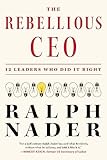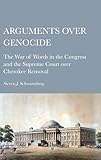In March 2006, my colleagues and I experienced first hand the hope of a better future coursing through Venezuelan society — a future where the downtrodden classes could see improvements in medical care, literacy, and the fulfillment of basic needs.
At that time though, there were rumors of Chávez seeking an abolishment of term limits on the presidency. I found such a proposal to be regressivist. Why? Everyone knows the caution about putting all one’s eggs in one basket, but this is essentially what support for an entrenched leadership is. A revolution must be rooted in the people — not in a figure. Although personalities may emerge as “leaders,” without the people a revolution will not be carried forward.
Now, the Venezuelan parliament has pushed through referendum articles that would allow for constitutional changes that would eliminate presidential term limits, deepen socialist reforms, and strip the central bank of its autonomy.
The movement toward socialism is laudable. Neoliberalism has been a disaster for the middle and lower socioeconomic classes, and socialism is a necessary step in the opposite direction to redress the losses of the working classes. Chávez hasn’t gone far enough in this regard though.
But tinkering with the constitution to allow for a long-term presidency is a mistake. Presidential term limits were implemented for a reason. Also if term limits shouldn’t apply to a president, then why should they apply to other Venezuelan parliamentarians? This is calculated hypocrisy. A long-serving president would be surrounded by lesser experienced parliamentarians, and presumably, this experience advantages the president against any parliamentary challenge.
The attainment of progressivist
Some would argue that Chávez is following democratic procedures to allow the people to decide on amending the constitution. This is true. Certainly, Chávez has won the trust of many Venezuelans, and he has brought about changes that have improved the lives of many citizens. Chávez seems to be a leader disposed to improving the lives of his fellow Venezuelans.
But what message does a long-term presidency convey when the revolution is focused on a man? That there is no one else who can be trusted to carry out further reforms in Venezuela (Let’s be honest, Venezuela is still hardly socialist; it is a market-based economy with uneven wealth distribution, and it is still waiting for a genuine revolution)?
The situation of an extended presidency sets Chávez up increasingly as a target for criticism and attack from US imperialists. One needs only look at the long presidency of Fidel Castro in Cuba.
If Fidel Castro were a great and selfless leader, would he not have relinquished the reins of power long ago? Would he not have insisted that the Cuban Revolution is more powerful and more durable than any leadership invested in one man? Could he not have stayed on in the Communist Party and played the important role of a fatherly guide to safeguard the revolution and insure the well being of the people? It may well be that the majority of Cuban people desire Castro to have continued as the Cuban leader since 1959 and that this confers legitimacy on Castro’s tenure as leader. Nevertheless, a great leader must always place the interests of the people and society above the vainglory of power. Arguably, Castro’s remaining in power for almost five decades has given US administrations a target for their specious accusations that Castro is a dictator (untrue; Cuba is a democracy
If a government is overly based in a leader, then there is little to prevent a skillful demagogue from rising to power and undoing progressivist legislation and leading society down a regressivist path. One needs look no further than Bill Clinton as an example of such a politician — a politician who presented himself as a man of the people, workers, and peace, but he undid much of the social safety net, signed the US onto corporate-friendly NAFTA which saw many US manufacturing jobs head elsewhere to low-wage competitors, and of course, there was US military adventurism in Bosnia, Serbia, Iraq, Somalia, and Sudan.
Anarchy: A Leadership of Everyone
The current political leadership schemata is anathema. Leadership is conducive to societal needs when the leadership comes from the people. Government does not require a leader; it requires servants who carry out the will of the people. A government leader, not granting that such is required, needs to take directives from the people. For this to function, people must have unfettered access to information upon which to make their decisions which way society is to go.
But given that information is tightly controlled, given that education is designed to serve the dictates of the capitalist class, given that academia is selectively appointed, and given that politicians have long played to the prejudices of the uninformed, the will of the people is not all it is cracked up to be. As Henrik Ibsen’s Dr. Stockman claimed,
The majority never has right on its side. Never, I say! That is one of these social lies against which an independent, intelligent man must wage war. Who is it that
constitute the majority of the population in a country? Is it the clever folk, or the stupid? I don’t imagine you will dispute the fact that at present the stupid people are in an absolutely overwhelming majority all the world over. But, good Lord! — you can never pretend that it is right that the stupid folk should govern the clever ones …
There is much to support the contention of Ibsen’s Dr. Stockmann. For example, despite early public support for the aggression and occupation of Iraq that has since soured, a majority in the US — 52 percent according to a Zogby poll, favors an attack on Iran!
In Israel, a poll indicated a plurality of Jewish Israelis support the transfer of Palestinians.
It looks like Chávez will win his desire to extend his presidency. Venezuelan people look poised to approve of such constitutional changes. This is “democracy.” It may represent the will of the people at a given point in time.
In the hands of a great person, leadership could be redeeming. Benign leadership can exist, but when the doors are opened for benign leadership to reign, those same doors are opened for authoritarian tyrants. So given the dangers of a leadership-based system in the long run, why would a good person grab the reins of power and hold on?
If Two Heads Are Better Than One, Then Wouldn’t Three Heads Be Better Than Two, and Four Better Than Five, …?
People are fallible — all of us. When electoral politics make one person the Decider, society winds up having to live with those decisions — good and bad. Is it not prudent to share the decision-making among more people? That is what some will argue that this is the role that a cabinet plays. However, a cabinet is usually chosen by a leader and this renders it prey to the leader’s biases.
The likelihood of fallibility expressing itself must be reduced among the masses of people because of the corrective mechanisms of discussion and debate that are less available to one person. The focus must be on the ideals and the struggle for a better society for all people.
Leadership, especially as a cult, is inimical to egalitarianism, and it misdirects energy from the struggle. People can energize a movement, and using this energy to advance the struggle is fine insofar as this energy is properly channeled and based on good information to allow for decision-making at a societal level.
Decision-making is a right of all the people. Let the people lead!










